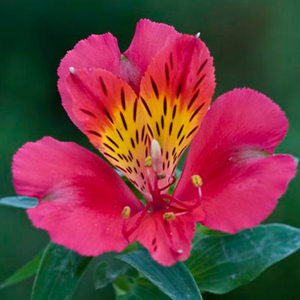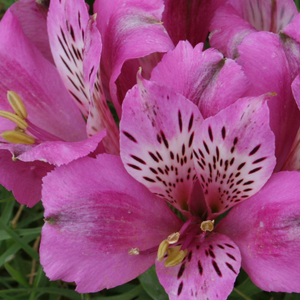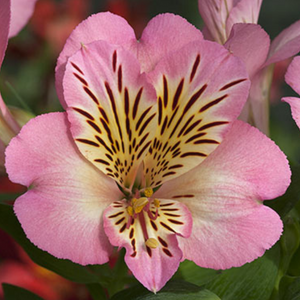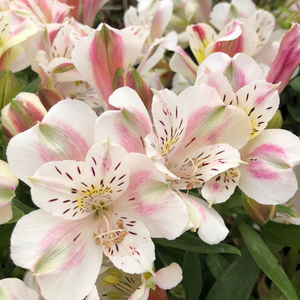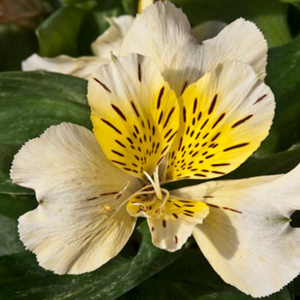As per our first post on this subject, we continue to answer some of your most pressing questions about alstroemeria.
Are Alstroemeria Annuals or Perennials?
Alstroemeria are tuberous perennials with deep, thick roots and are repeat flowering plants that grow back every year.
They are able to do this even though the stems die over winter as the roots remain healthy, allowing the plant to regenerate the following year.
Which brings us nicely on to the next question:
Are Alstroemeria Hardy Plants?
Alstroemeria are not just perennials, they are considered ‘hardy perennials’.
As long as the roots are established and deep enough (usually around 2 years after planting) alstroemeria are capable of surviving intense frosts – at times down to -50C.
However, we recommend that you mulch them in their first winter.
Do Alstroemeria Spread?
Alstroemeria form in clumps and the roots will proliferate and spread as time goes by. You will never be short of alstroemeria in the garden because of this. One of the many reasons we love them!
To spread the love more evenly you can divide them every two or so years.
What Diseases can Alstroemeria get?
- Pythium Root Rot – A fungi that causes weak stems, wilting and stunted growth. It creeps in if the soil is too heavy and sodden for a long time. This can be rectified or prevented by making sure the soil is well-draining. However, once they're infected you’ll need to get rid of all affected plants.
- Rhizoctonia Root Rot – Signs of this fungi are wilted leaves and dried stems that don’t get any better with watering. Once again, this is likely due to soil that isn’t draining well.
- Botrytis Blight – Also known as ‘grey mould’ for good reason as it appears as furry, grey-brown spores when the weather is humid. It spreads on wet plants, so make sure there's sufficient space between them to help with air circulation. You’ll also want to irrigate them from beneath, concentrating water only on the roots, and remove old or damaged plant debris.
- Viruses – If you see lines and/or spots on the leaves, you probably have a case of tomato spotted wilt virus or Hippeastrum mosaic virus on your hands. If so, unfortunately it is terminal and all affected plants will need to be destroyed. Aphids and thrips are responsible for the spread of this killer so you’ll want to try and keep those critters under control.
Do Alstroemeria like being in Pots?
Alstroemeria do very well in pots and the shorter dwarf varieties are particularly suitable.
All our alstroemeria plants are sold in 9cm pots, ready to be potted on into larger pots. They will grow quickly, easily filling a 3-litre pot within 6-8 weeks in growing season.
Some transferring tips:
- Mix fertiliser evenly into good, fresh, multipurpose compost
- Put some of this mix into the bottom of the new pot and place the well watered plant onto it
- Put more compost around it. The compost should finish level with the top of the rootball, 1-2cm below the rim of the new pot (to allow for watering space)
- Water fairly lightly from a watering can with a rose
- Place in a warm, sunny position to grow on for 6-8 weeks in spring/summer, or over winter, until the roots have reached the bottom of the pot
- Water lightly but frequently (the compost should dry out on the surface between watering)
And there you have it!
If you still have questions that are going unanswered, please feel free to let us know on one of our social media platforms.

